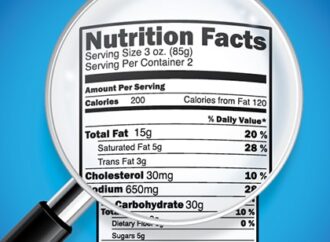Protein powders are all the rage these days, particularly considering the growing influence of wellness culture. If you spend a lot of time at the gym, or are interested in fitness, you’ve probably heard of them already. They’re also popular among vegans and vegetarians who need a good source of protein, and among folks who want to manage their weight, or lose weight without losing muscle.
Aside from the fact that many gym-goers find protein shakes to be a good way to round off their morning workout session, protein powders maybe medically recommended if you’re recovering from a surgery or an injury, if you’re struggling with low appetite, or if you’re at an advanced age and need more protein in your diet.
So what’s this protein powder business all about? And is it safe? Let’s look into it.
What exactly are Protein Powders?
Simply put, protein powders are concentrated sources of protein that are often consumed as shakes (with milk, water, as part of a smoothie, and so on). You can even cut out the process of adding a liquid and just buy ready-to-drink protein shakes. As you can probably guess, protein powders are of several different kinds, and, depending on the kind, are made up of different ingredients. They’ve been a staple of fitness culture in the West, but you can find a large variety of such powders in India now, especially in online markets.
Types of protein powders
There are a huge number of protein powders out there of different types, but we’ll have a quick look at some of the most popular ones.
- Protein powders made of whey protein tend to fly off the shelves. These are milk-based powders that contain essential amino acids, or branched-chain amino acids (BCAAs, a term often used in wellness culture communities). Despite the presence of lactose, whey proteins are easy to digest for most people, and they can actually be very good for gut health. They’re also good for managing blood pressure and sugar levels, for heart health, and for weight management. It’s no surprise that a lot of people tend to turn to whey based powders for weight loss or for a post-exercise pick-me-up.
- Casein protein powders are also milk-based, although they’re generally slower to digest. They have a similar nutrient profile to whey protein, and they’re particularly good for managing high cholesterol and boosting immunity.
- Egg protein powders, as you can guess, are primarily composed of protein from egg whites. These are easy to digest, keeps you full, and are packed with the nine essential amino acids. If you’re uncomfortable with consuming dairy or are lactose-intolerant, this could be a good option for you. These are particularly good for muscle growth, bone and heart health, eyesight, and of course, keep your appetite levels manageable.
- If vegan or vegetarian alternatives are what you’re interested in, several types are also available. However, you should keep in mind that plant-based powders might have sweeteners thrown in to enhance the taste, so a quick survey of the ingredients list before you buy is advisable. Pea protein powders are particularly well-liked, packed with BCAAs, and made from yellow split peas. They’re good for managing pressure and heart health. Hemp protein powders are also plant-based (made from hemp seed), although they have a lower protein content than some other protein powders. But they’re rich in fibre, and great for gut and heart health.
- Soy alternatives are everywhere, so the fact that soy protein powders (made from dehydrated soybean) are on the market now seems like a pretty natural route for the vegan fitness market. Soy protein can be good for building bone density, and is also recommended for symptoms of menopause. It can also help to control cholesterol.
There are several other types out there, from powders using a brown rice base to almond protein powders. But what you end up going for will probably depend on your dietary restrictions, your preferences, and what’s available to you.
Are protein powders necessary?
This is really the most important question when it comes to examining all the hubbub surrounding protein powders. Do we actually need them?
It’s generally agreed that while protein powders can be very useful, they’re supposed to act as supplements, not replacements. If you follow recommended guidelines, you should be consuming eggs, yogurt, nuts, milk, and chicken (if you eat meat) on a regular basis, and legumes are a good source of protein for vegan folks. The majority of your protein consumption should come from hearty meals, not protein powder smoothies.
Protein shakes are generally popular with regular gym-goers because they’re constantly in the process of building and repairing muscle. If fitness is a real hobby of yours, and you spend all your free time working out, a bit of an extra protein boost won’t go amiss, particularly if you’re eating a plant-based diet. However, the average individual who eats a balanced diet and gets some regular exercise doesn’t really require a supplement. Let’s not forget that protein powders, though they do require very little effort to cook up, can also be quite expensive.
Can they be dangerous?
In 2020, fake protein powder was seized by the Uttar Pradesh Police. According to The Times Of India, hundreds of kilos of fake protein powders labelled under top U.S brands were being supplied to various parts of India from Muzaffarnagar.
Before you buy protein powders, don’t just trust that everything you need is in there. Read the labels. Make sure you buy from reliable sources.It might even be beneficial to consult a doctor before adding a protein powder to your regular regimen. If you’re not overly health-conscious, you’ll probably only be recommended protein powders if you suffer from appetite issues, are ill, or have a medical condition that requires you to get more protein in your diet.
While there’s nothing explicitly dangerous about having a protein shake once in a while, you don’t always know what you’re consuming, and research on protein powders has been limited so far. We don’t, as of yet, know as much as we should about the long-term effects of consuming protein powders, and some powders can be quite high in sugar or in calories. This will become an issue if you have an underlying medical condition, or if you’re trying to maintain a strict balance in what you consume. Too much protein in your diet has been shown to upset the microflora in the gut, lead to kidney damage and increase calcium loss from the bones.
Whether you’re an exercise fiend or not, it’s best to consult a doctor before you swap out your morning coffee for a protein shake. They can be useful, of course, but ‘everything in moderation’ is as good a motto as any when it comes to food.
 Food Manifest
Food Manifest 

















Leave a Comment
Your email address will not be published. Required fields are marked with *